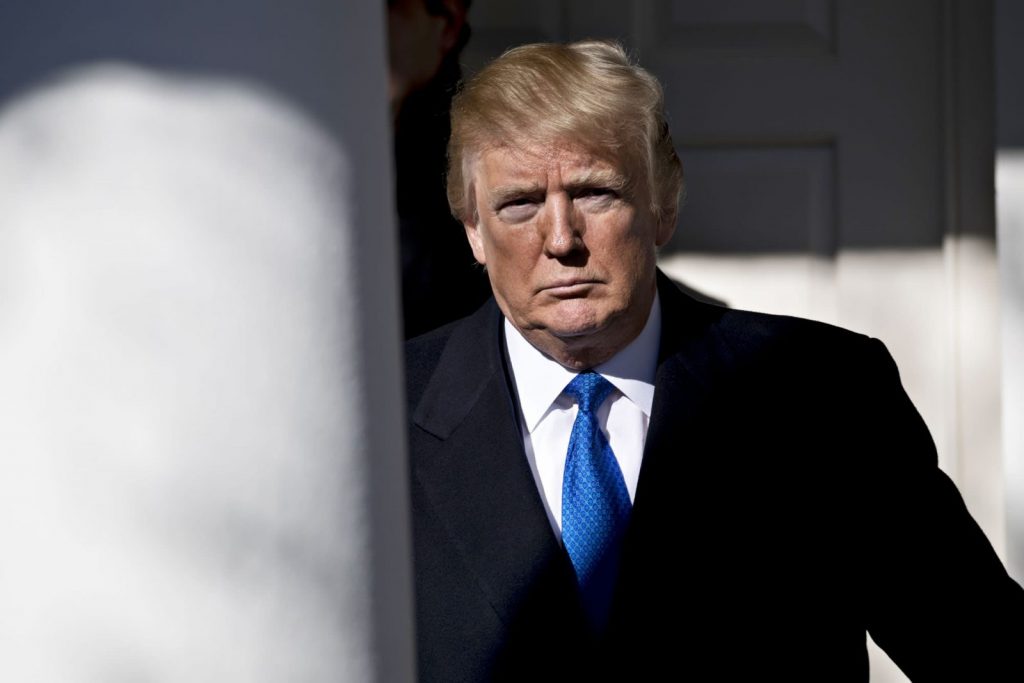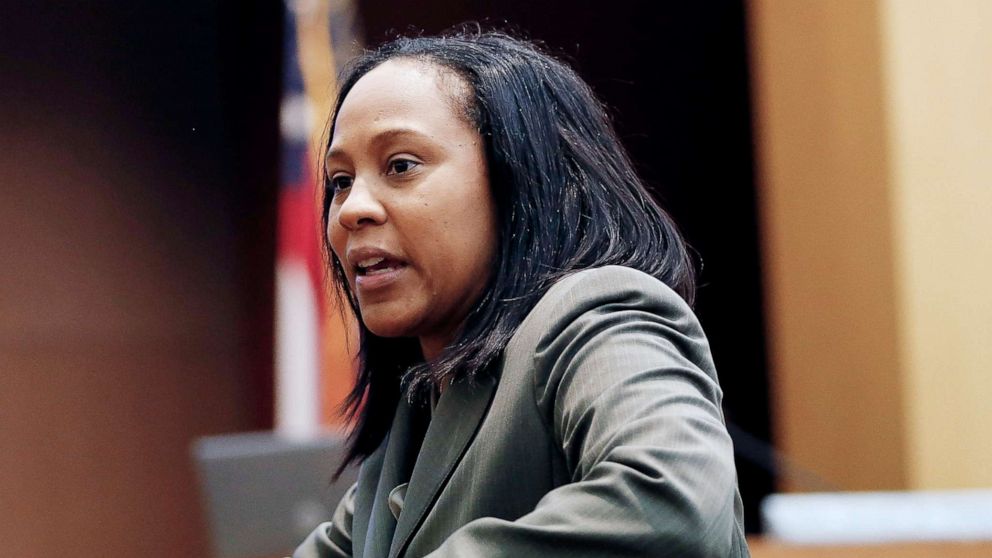Post-Election Investigations Could Yield Criminal Charges for Trump
Elections and Politics Policy Brief # 24 | By: Zack Huffman | August 16, 2021
Header photo taken from: ABC News
Follow us on our social media platforms above
Browse more elections and politics policy briefs here
Photo taken from: Getty Images
Policy Summary
Despite the 2020 election results decisively showing a majority of Americans wanted Donald Trump out of office, the former president showed that he was not willing to go down without a fight. And now he may face criminal charges for his post-election shenanigans.
In the weeks following the election, Trump reportedly attempted to pressure Georgia’s attorney general to reverse the results oforthe state, which went blue for the first time since 1996,
Fulton County District Attorney announced that she had opened a criminal investigation into Trump’s alleged efforts to pressure Georgia Secretary of State Brad Raffensperger to overturn the results of the election, and award Trump Georgia’s 20 electoral votes.
Trump called Raffensperger on January 2, and urged the secretary of state to “find 11,780 votes” which would have theoretically given Trump the win in the Peach State by 1 vote. The phone call was leaked by the Washington Post.
Days later, Trump spoke before a large crowd in Washington D.C. on January 6, and urged his supporters to “stop the steal” in reference to Congress certifying the election results in favor of Joe Biden, which was taking place at the same time.
“And we fight. We fight like hell,” said Trump, according to a transcript published by the Associated Press. “And if you don’t fight like hell, you’re not going to have a country anymore.”
Trump then instructed the crowd to march down Pennsylvania Avenue to the Capital.
That is exactly what his supporters did, before storming the Capital.
Both the phone call to Raffensperger and Trump’s Jan. 6 speech have now potentially left the former president vulnerable to legal action.
Policy Analysis
District Attorney Fani Willis, who serves Fulton County, which includes Atlanta, Georgia, announced on February 10 that her office had opened an investigation into possible election crimes.
“This investigation includes, but is not limited to, potential violations of Georgia law prohibiting the solicitation of election fraud, the making of false statements to state and local governmental bodies, conspiracy, racketeering, violation of oath of office and any involvement in violence or threats related to the election’s administration,” wrote Willis in a series of letters sent to Georgia’s governor, lieutenant governor, secretary of state and attorney general on February 10.
The Washington Post reported, last month, that Willis’ office said that it was preparing to issue subpoenas to individuals who have yet to comply with requests to be interviewed as part of the investigation.
A more recent article from Business Insider noted that as of August 11, Willis was still conducting her investigation, but she was also avoiding publicly speaking about the case.
Meanwhile, Washington D.C. attorney general, Karl Racine is considering criminal charges against Trump for his January 6 speech under the district’s disorderly conduct law.
Photo taken from: ABC News
Racine told MSNBC, in a January interview, that his office was considering charging Trump with a misdameanor. As attorney general of the District Columbia, Racine has limits on what his office can pursue legally, since D.C. is not a state.
The district amended its disorderly conduct law in 2011, to make it a crime to “incite or provoke violence where there is a likelihood that such violence will ensue.” The crime is a misdemeanor and carries a maximum sentence of six months in prison, according to Racine’s interview with MSNBC.
The D.C. Attorney General has limited powers to pursue criminal charges, but a spokesperson from Racine’s office told U.S. Renew News that as of mid-August they were still considering whether or not to pursue criminal charges under the disorderly conduct law in relation to the Jan. 6 riot.
Both investigations are still early, and may or may not yield actual charges. But it is likely that Trump could face additional charges depending on what kind of information comes out of recent hearings that the legislature has been conducting into post-election activity.
Photo taken from: The New York Times
Most recently, former acting Attorney General Jeffery Rosen told the Senate Judicial Committee that he had to resist Trump’s demands to use the Justice Department to discredit the election results.
Aside from criminal charges, Trump is also facing civil litigation for his role in the January 6 riot.
U.S. representative Eric Swalwell filed a lawsuit against Trump in March, seeking a court order barring Trump from holding future large gatherings in D.C. or state capitals without first providing a seven-day notice.
The lawsuit is similar to one filed by U.S. representative Bennie Thompson against Trump and his allies from the January 6 rally. Thompson’s lawsuits seeks a court order establishing that Trump violated the Ku Klux Klan act, which covers threats made to elected officials.
Engagement Resources
Click or tap on image to visit resource website.
Associated Press:
Transcript of Trump’s speech at rally before US Capitol riot
D.A. Willis’ letter announcing her investigation. (obtained through NPR)
MSNBC:
Washington D.C.’s disorderly conduct law
Just Security maintains a webpage that tracks ongoing civil and criminal cases against Donald Trump.
Business Insider:
The longtime prosecutor leading the Georgia investigation into Trump has gone silent
Washington Post:
Trump urged Raffensperger to “find 11,780 votes”











